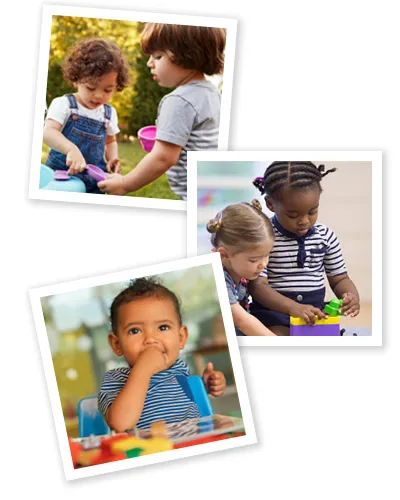Social-Emotional Solutions for Our Youngest Learners
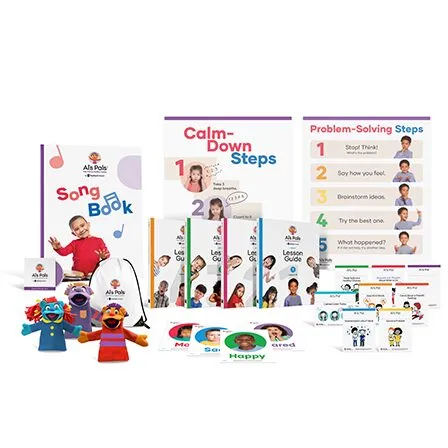
Social Emotional Curriculum for Preschool
Provide the foundation of resiliency and protective factors that every child needs and deserves with a nationally recognized, evidence-based social–emotional curriculum designed for the specific needs of preschool children.
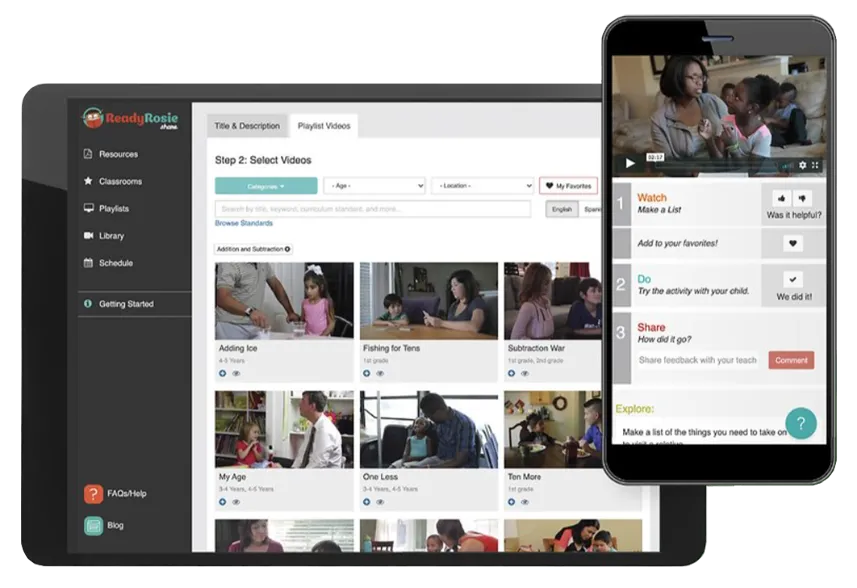
Parenting Curriculum/Family Engagement
Better serve and engage all families with a research-based framework and video modeling that will help families extend and reinforce social–emotional and mental wellness concepts at home
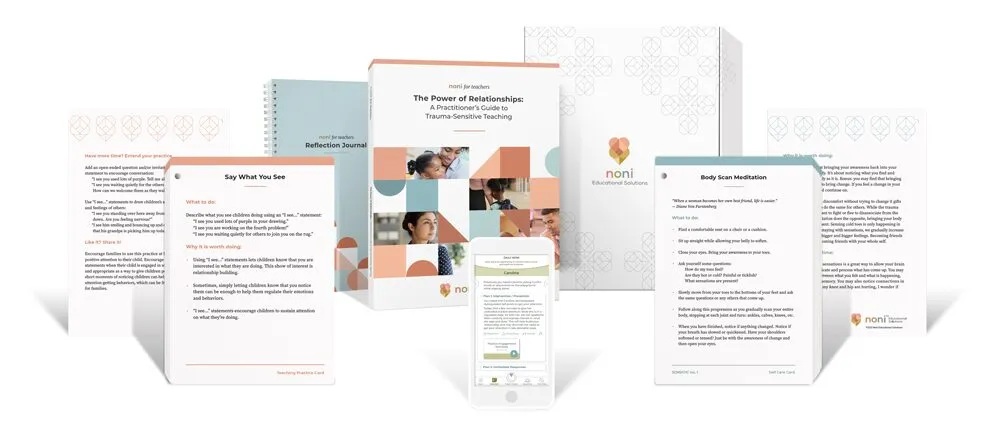
Build Trauma Sensitive Classrooms
Create trauma-sensitive, relationship-focused learning environments to mitigate the impact of trauma and adverse childhood experiences (ACEs) on young children while prioritizing their own mental health and wellness.
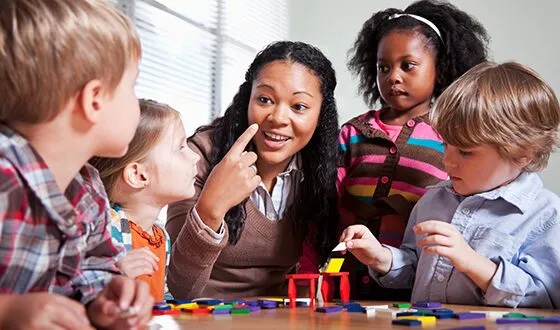
Building strong connections from the start
The start of the school year can be a big transition, but supporting children’s social-emotional development from day one can make a difference for a lifetime.
Every teacher knows that the first weeks and months of school are a critical time for young children, as they establish relationships with adults and peers and learn to be part of a classroom community. Each child’s ability to form caring relationships and successfully interact with others is critical to success in school—and in life.
Teaching Strategies provides resources and strategies for teachers, aides, volunteers, or anyone else in the classroom who is interacting with young children to support positive social-emotional development during this critical time of year.
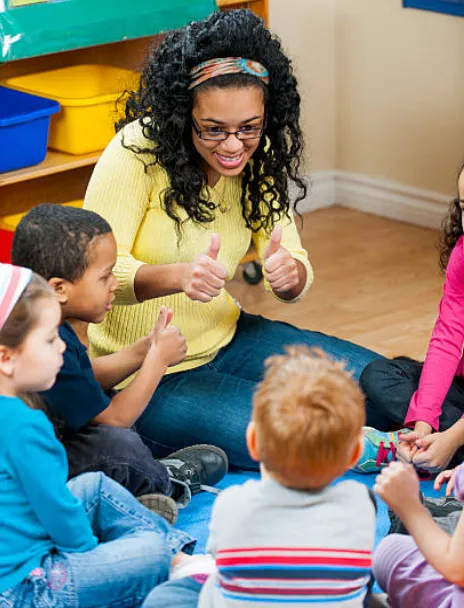
Teaching Strategies offers tools to help the whole child be successful.
Supporting the social-emotional development of children at the beginning of the year—and all year long—builds a solid foundation for the future. Our curriculum focuses on supporting the whole child, because we know that success isn’t only about making progress in math and literacy. By equally focusing on social-emotional development, we can help children to successfully manage their emotions, build relationships with other children, feel safe, and learn classroom rules and routines.
Research shows an undeniably strong connection between early relationships in school and later behavior and learning. We make it easier for teachers to assess children’s social–emotional development accurately and support their growth and competence in this area. The resources we provide to guide teachers in supporting social–emotional development are backed by 40 years of research and innovation in early childhood education.
Learn tips, guidance and strategies for emotional-social development through our new video series.
Teaching Strategies is committed to empowering and inspiring early childhood educators as they teach and care for our youngest learners. Each of these short videos highlights a different strategy to implement in the classroom—from rules about safety and kindness to ways to build a positive classroom community.
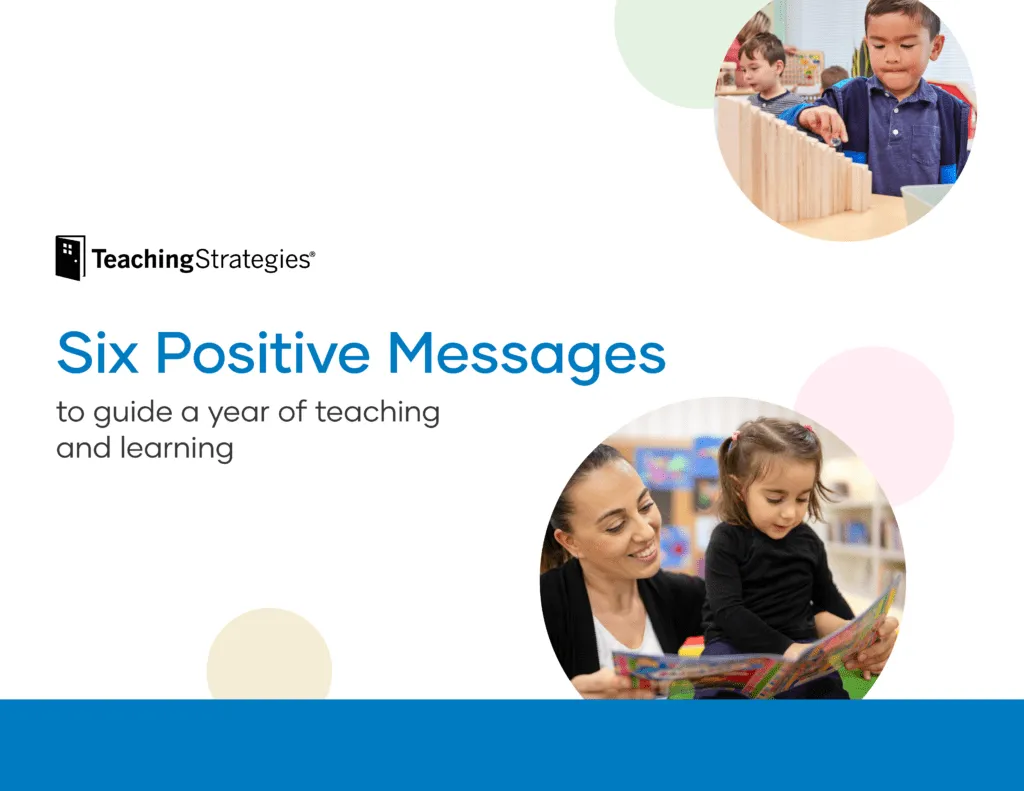
Download FREE eBook
Six Positive Messages to Guide a Year of Teaching and Learning!
In Six Positive Messages to Guide a Year of Teaching and Learning, you’ll discover simple yet powerful messages you can send throughout the year to foster relationships and encourage children to see themselves as empowered participants in a community of learners.
Learn how to:
-
- Model six positive messages for children
- Turn your best intentions into purposeful instruction
- Reflect on and revisit positive messages throughout the school year
The strategies outlined in this eBook will help build critical social–emotional and cognitive skills that are essential for lifelong learning.
Get your free copy today!
Our research-based resources are proven to help educators deliver better outcomes for children.
Teaching Strategies has developed comprehensive solutions based on a vast body of research in the early childhood field. We have spent decades supporting teachers with research-based guidance and best practices for helping children manage their emotions and sustain positive relationships—factors critical for academic success, peer acceptance, social competence, mental health.
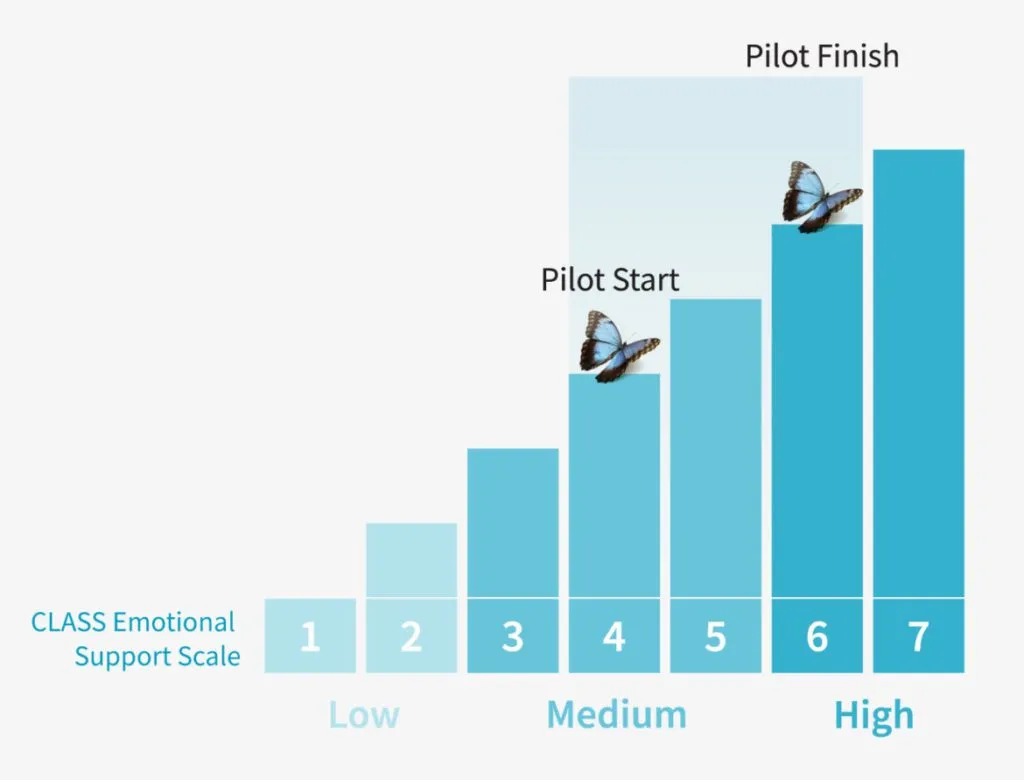
Emotional Support and the Creative Curriculum
When looking at metrics from the CLASS methodology, curriculum users who participated in a two-year pilot study, on average started the pilot at a 4, and ended the pilot at a 6—reflecting a strong start and tremendous growth with the use of the Creative Curriculum.
Download our latest curriculum effectiveness study!
